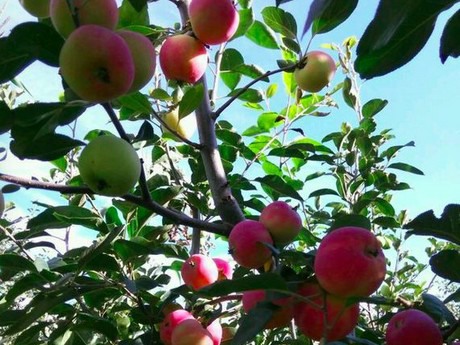
Small volumes are hard to sell
Ms. Zhao is a local. Her family has a large stretch of apple orchard. "Even though the orchards here are all big, they don't yield all that much. Compared to other apple regions in China, the Lugu Lake region is considered a low-yield area. There are two main explanations. First there is the climate. Apple trees are categorised as temperate zone vegetation. They're mostly cultivated in provinces like Shandong, Shaanxi and Shanxi. High elevation regions are colder and dryer than low elevation regions in the same period. So the production volume of agricultural products from high elevation regions are generally lower. Another reason is the soil. The local high elevation soil is not very fertile, but also no chemical fertilisers or pesticide are used. Every farming household uses its own organic waste as fertiliser. This also keeps the production volume low," says Ms. Zhao.
Difficult access to online shops
The proportion of fruits and vegetables that are sold in online shops is getting bigger and bigger these days. Be that as it may, this trend has brought no visible benefit for the Lugu Lake apples. "The Lugu Lake region is pretty remote and express delivery isn't developed here. Almost everyone who tasted our local apples come back for more. But the delivery cost still exceeds the actual cost of the apples by a large degree and the process of transportation involves many factors that are not under control. Indirectly they influence the quality of the apples. The development of the online sales industry in this region is very slow as a result."
The Lugu Lake apples are ripe rather late compared to other regions. We normally start to harvest at the end of autumn or the start of the winter. We hope that the prospects for the sales of our apples may change for the better this year.
For more information about Lugu Lake apples,
Telephone:+86 15283427780










